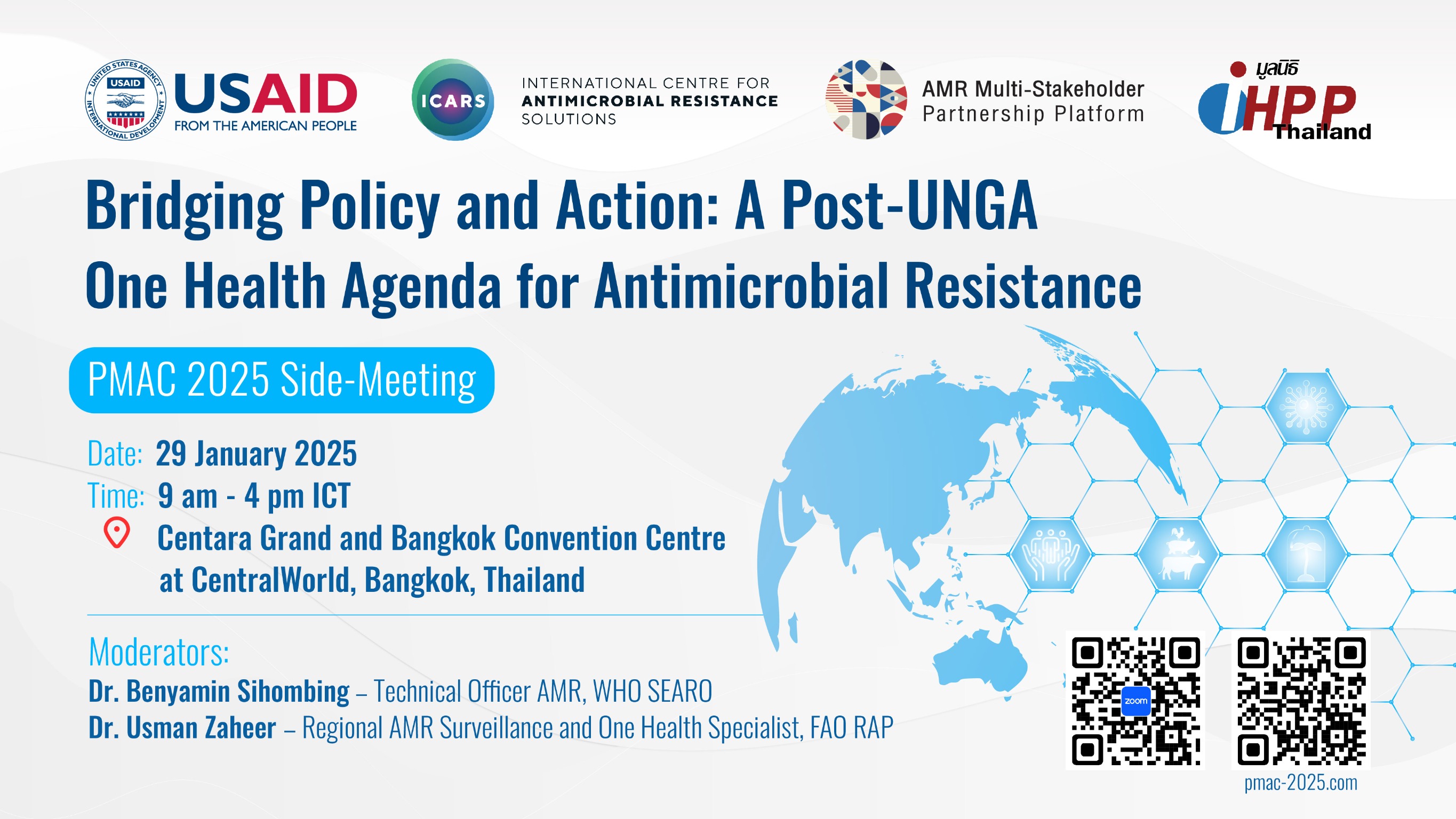Side Meetings
SMB312
Bridging Policy and Action: A Post-UNGA One Health Agenda for Antimicrobial Resistance
29
Jan
- U.S. Agency for International Development (USAID)
- International Centre for Antimicrobial Resistance Solutions (ICARS)
- AMR Multi-Stakeholder Partnership Platform (MSPP)
- The International Health Policy Program, Thailand (IHPP)

In September 2024, a high-level meeting on antimicrobial resistance (HLM AMR) was held at the 79th session of the UN General Assembly. This is the second HLM on AMR (the first one in 2016), showing continuous commitment to mitigating this global challenge and resulting in member states agreeing to a new declaration[1] and concrete actions to address AMR through a One Health approach. While progress has been realized, AMR remains amongst our most pressing global health threats. Bacterial AMR, associated with 4.95 million deaths annually, is a leading cause of global mortality from infectious diseases and undermines attainment of the 2030 Agenda for Sustainable Development goals, from securing health and a healthy environment to eliminating poverty and hunger. The new UNGA declaration commits to reducing the human deaths associated with AMR annually by 10% by 2030, as well as decreasing antibiotic use within the agri-food sector. It also calls for urgent action and heightened incentives for research and development.
This PMAC 2025 side meeting will harness momentum from UNGA HLM AMR and focus on translating commitments into actionable interventions in the Asia and Pacific region. By drawing upon examples and case studies from low- and middle-income country contexts in the region, multi-sectoral One Health approaches to mitigating AMR risk will be shared and discussed with opportunities for translating data into policy and practice.
AMR has been interwoven throughout the history of the Prince Mahidol Awards Conference: from side meetings in 2016 and 2017 to a core pillar of the PMAC 2018 conference, “Making the World Safe from the Threats of Emerging Infectious Diseases.” Through plenary presentations, panels, and discussions—and with a focus on elevating voices from low and middle-income countries—this PMAC 2025 side meeting will extend these dialogues and explore approaches to (1) strengthening country owned implementation of the multi-sectoral National AMR Action Plans; (2) enhancing multi-sector coordination of AMR relevant financing and initiatives at country and regional level; and (3) translating evidence and knowledge into policy and practice.
[1] FINAL-Text-AMR-to-PGA.pdf (un.org)
- Harness momentum from UN General Assembly High Level Meeting on AMR and identify practical approaches to translating political commitments into actionable interventions
- Characterize current enablers, gaps, challenges, and pathways to advance multi-sectoral One Health solutions to the AMR pandemic with a focus on the science-policy interface
- Profile successful AMR interventions in low and middle-income country (LMIC) contexts that show promise of scalability

